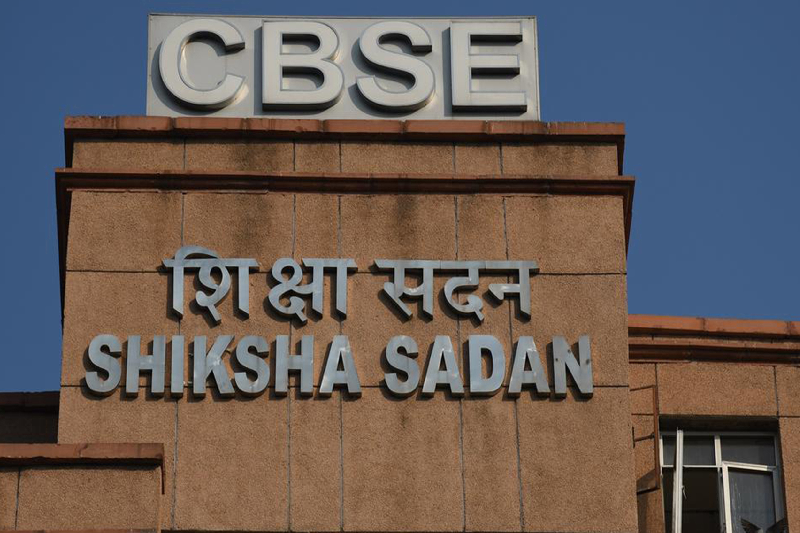
CBSE Reaffirms 75% Attendance Rule for 2025-26 Board Exams: Detailed SOPs Issued for Schools and Students
Introduction: Ensuring Accountability in Attendance
In a move to reinforce academic discipline and transparency, the Central Board of Secondary Education (CBSE) has reasserted its mandate of 75% minimum attendance for students appearing in the Class 10 and 12 board exams for the academic year 2025–26. Released on August 4, 2025, this directive is a continuation of the earlier notification dated October 9, 2024, and is aligned with Rules 13 and 14 of the CBSE Examination Bye-Laws.
To guide schools and stakeholders, CBSE has also issued a comprehensive Standard Operating Procedure (SOP) to streamline the handling of attendance shortages. The new directive clearly outlines roles, responsibilities, and consequences—putting the onus on schools to ensure full awareness, proper documentation, and proactive communication with parents and students.
Mandatory 75% Attendance Rule: A Non-Negotiable Norm
The central message of the directive is unambiguous—students must have a minimum of 75% attendance to be eligible for the 2025–26 board exams. This rule applies uniformly across all CBSE-affiliated schools and is not subject to arbitrary relaxation, except under very specific, pre-approved conditions.
The Board's concern stems from rising instances of absenteeism and manipulation of attendance records in some institutions, prompting stricter compliance measures. The directive also serves as a reminder that habitual non-attendance can disqualify a student from appearing in the final board examination.
Key Guidelines Issued for Schools
1. Early Awareness and Sensitisation
From the outset of the academic session, schools are now required to sensitise both students and parents about the significance of regular attendance. They must explain not only the rule itself but also the repercussions of failing to meet it. The acceptable grounds for condonation in case of shortage must be clearly communicated.
2. Structured Leave Protocol
The SOPs make it clear that any leave taken for medical or emergency reasons must be properly documented. Students must submit formal leave applications, accompanied by medical certificates, death certificates, or relevant official documents. Unauthorised absences will no longer be ignored—students with long unexplained gaps may be declared “dummy candidates,” effectively barring them from taking board exams.
3. Real-Time Attendance Monitoring
CBSE now expects schools to maintain up-to-date and accurate daily attendance records. These registers should be manually signed by class teachers and school authorities. They must be kept ready for surprise inspections by CBSE officials at any time. Lapses in record-keeping or fabricated entries can invite severe penalties, including disaffiliation.
4. Transparent Communication with Parents
If a student shows signs of irregular attendance, schools must inform the parents without delay. This communication should be made through registered post or official email, with proper records maintained. This step not only helps in intervention but also ensures accountability in cases of dispute or appeals for condonation.
5. Surprise Inspections and Disciplinary Action
To further enforce transparency, CBSE reserves the right to conduct unannounced inspections of schools. If discrepancies or manipulations are found in the attendance records, the consequences could be severe—ranging from cancellation of a student’s board exam eligibility to revocation of the school's CBSE affiliation.
CBSE’s SOPs for Attendance Condonation: What Schools Must Know
For students who fall short of the 75% attendance due to genuine reasons, CBSE allows a provision for attendance condonation—but within a strictly defined framework.
Valid grounds include:
- Prolonged illness
- Death of a parent or close family member
- Serious emergencies
- Participation in national or international sports or other recognised competitions
In such cases, schools must compile and submit detailed documentation, including:
- Formal leave applications from students/parents
- Supporting documents (e.g., medical records, death certificates, event participation proof)
- School’s internal recommendations verifying the legitimacy of the case
All these documents must be submitted to the CBSE Regional Office by January 7, 2026. CBSE has made it clear that late or incomplete submissions will not be entertained. Additionally, no changes to attendance records will be accepted after submission, eliminating any possibility of post-facto manipulation.
Why This Move Matters: Reinforcing Academic Ethics
The 75% attendance rule isn’t just a regulatory formality—it serves as a framework to ensure that students are consistently engaged with classroom learning. CBSE’s proactive issuance of SOPs underscores the board’s commitment to building a more transparent, structured, and accountable academic environment. It also reinforces the role of schools as responsible custodians of student welfare and record-keeping.
This move is particularly significant at a time when digital and hybrid learning models have made it easier for absenteeism to go unnoticed. With these stringent measures, CBSE is clearly drawing a line—prioritising discipline, documentation, and due diligence over convenience.
Final Thoughts
As the 2025–26 academic year progresses, this directive places responsibility squarely on both institutions and families to ensure that students remain present, participative, and prepared. CBSE's clear-cut SOPs aim to standardise how attendance shortages are dealt with—leaving little room for ambiguity or leniency.
For students aiming to appear for the board exams, the message is clear: regular attendance is not optional, and exceptions are limited and strictly monitored. Schools, in turn, must act as vigilant facilitators, maintaining transparency and adherence to CBSE norms at every step.



